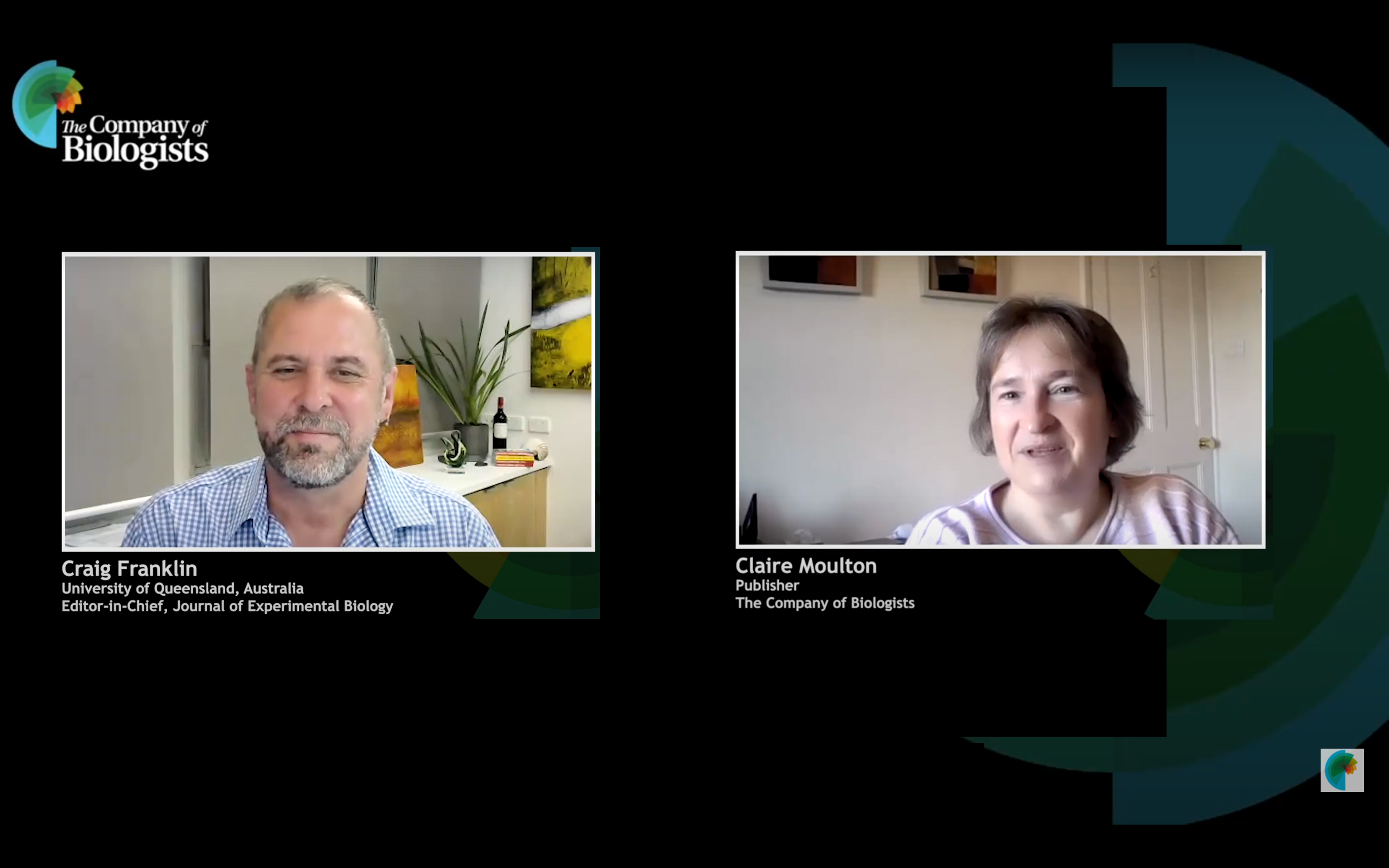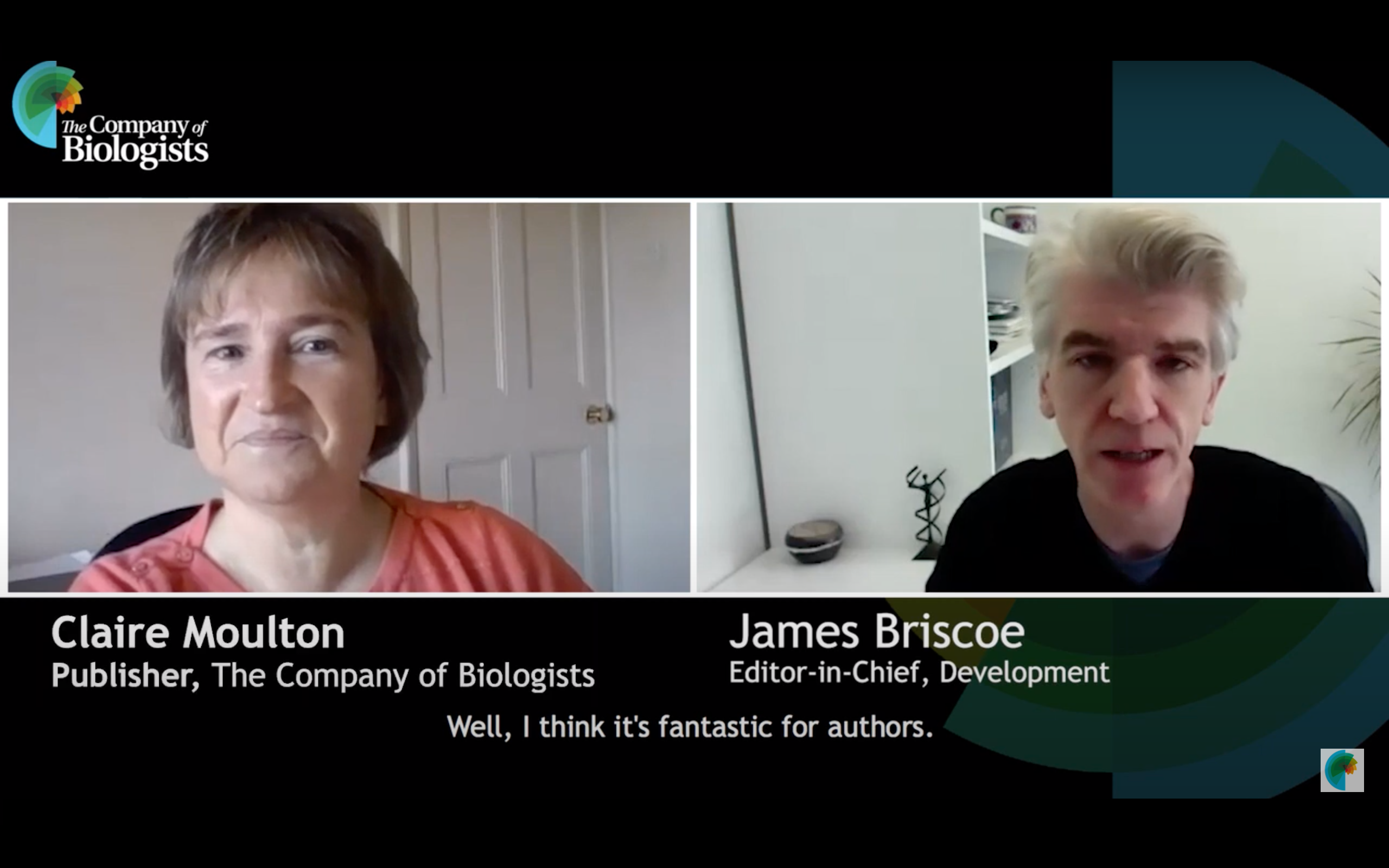Liz Patton on Open Access and Read & Publish in Disease Models & Mechanisms
Editor-in-Chief, Liz Patton, talks about Disease Models & Mechanisms, the importance of Open Access publishing, and how the fact that the journal is now included in the The Company of Biologists’ Read & Publish initiative benefits researchers.
Transcript
Liz Patton: My name is Liz Patton. I am the Editor-in-Chief of Disease Models & Mechanisms and I am at the MRC Human Genetics Unit at the University of Edinburgh.
Liz Patton: DMM or Disease Models & Mechanisms is a biomedical research journal. And what we want to publish is work that advances novel insight into mechanism, diagnosis and therapy of human disease.
Liz Patton: DMM is an Open Access journal,and what this means is that all the content, including our Reviews and posters, is free to read for everyone and this includes researchers, clinicians, patients and their families and advocates. So really everyone has access to the work that is published in DMM.
Liz Patton: DMM is interdisciplinary in scope and it covers a very diverse range of diseases and experimental systems. And this includes neurodegeneration, drug discovery, cancer, muscular disorders, rare diseases.
Liz Patton: We are very interested in the broad range of human disease. So in addition to papers that really provide new insight into disease, we also publish cutting-edge techniques and resources that advance the disease biology field.
Liz Patton: So this might be new organoid systems or new multi-cellular systems or new genome-editing techniques. So we really want to,be a resource for both the research side, as well as the new innovation and resources for the disease biology field.
Liz Patton: I should say, we have an outstanding team of research-active Editors who handle all the submissions and everything is peer reviewed of course and this peer review is vigorous, but fair.
ALiz Patton: As Editor-in-Chief of DMM, there are really two strong principles that underlie the vision for the journal. And this is high-quality disease research and accessibility, and we consider these the twin pillars of DMM.
Liz Patton: And so on the one hand, we have the basic and translational science that is essential for probing disease, aetiology and advancing diagnosis and therapy and on the other, we have this very important need that the results of the scientific research are freely accessible to anyone and everyone. And so these are really our twin pillars,quality disease research and accessibility.
Liz Patton: In addition to this, we want to really hear the voices of scientists and patients about disease research and so we are looking forward to DMM engaging in important and sometimes difficult conversations for the scientific community and to really understand the needs throughout the spectrum of disease biology research.
Liz Patton: So people should submit to DMM for many reasons and one of the most important reasons is that we are very well respected. We are run by scientists for scientists. We bring visibility to the work and we bring this work to the community. Submissions are handled by research-active Editors with competitive decision speeds and a strong ethical approach
Liz Patton: For those who don't know, The Company of Biologists is a not-for-profit publisher and so when you submit to DMM, you are supporting the scientific community.
Liz Patton: Open Access is at the heart of DMM and we feel this is good for science and good for scientists. Open Access allows a broader set of readers, in fact, anyone from around the globe, to access the latest research immediately as it is published.
Liz Patton: We feel this is especially important for a biomedical journal, such as DMM. We want to ensure that patients, their doctors, their families and advocates can all access the research that is related to their condition.
Liz Patton: Authors also will receive benefit because more people can read their work and this is particularly beneficial for early-career researchers.
Liz Patton: The Read & Publish initiative has already been hugely successful for our sister journals - Development, Journal of Cell Science and Journal of Experimental Biology - and so we are so excited to be included in the Read & Publish agreements for 2022.
Liz Patton: I should say that DMM already offers waivers to researchers based in low-and lower-middle income countries and we believe this is an important way to help democratise science.
Liz Patton: So we are really excited that the Read & Publish initiative as it enables corresponding authors at participating institutions to publish an unlimited number of articles in an Open Access format in DMM without having to pay an APC-fee. And so we know this enables a broader set of researchers and authors to publish in our journal.
Liz Patton: And we really view this as a better way to disseminate science and also a fairer way to do science.
Liz Patton: Looking forward at DMM, we are really interested in pushing more into the mechanisms of disease biology, as well as identifying the translational aspect of in vivo disease biology. We are expanding our front section and including more Editorials, Perspectives and Reviews from leaders in the field and, as part of this, we are looking at issues relating to patient advocacy.
Liz Patton: We are very excited about our special issues, and these are dedicated issues to an exciting question or component of the field of disease modelling, where we really focus the whole issue, right from the beginning to the end, specifically on this one disease or new model system or approach.
Liz Patton: We also have Journal Meetings and this is a unique opportunity for a couple of days for researchers from around the world to come together to really think about a specific disease and I should say this includes researchers at all career stages and we also continue to support Travelling Fellowships and Conference Travel Grants.










